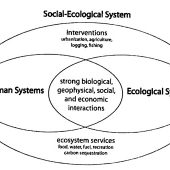Sustainable development and creative thinking have become central aspects of Higher Education in today’s multidisciplinary world. With the balance between learning and teaching priorities in mind, the Design Academy, Sichuan Fine Arts Institute and School of Design, Jiangnan University incorporated the author’s newly evolved teaching methodology — 3Ac: ‘Acknowledgment, Action and Accountability’ model of sustainable development and creativity — into its taught programs at all levels. The 3Ac model is a formative learning method for building the capabilities of individuals to create changes toward sustainable development. This paper first defines the 3Ac design methodology (Acknowledgment, Action, and Accountability) in the context of sustainable development and education: Acknowledgment is the appreciation and recognition of the importance of sustainable development in the face of global challenges, with a particular focus on team effort, co-design and sharing findings and practices. Action is the establishment of design strategy and action plans that consider not only the importance of intentions, goals, affordable and reachable resources but also a clear road map for achieving maximum efficiency when tackling the most challenging tasks. Accountability deals with a growing understanding of the benefits of working together to tackle global challenges such as Corporate Social Responsibility (CSR) practices. The framework aims to develop students’ capabilities through case studies of undergraduate, graduate and continuing professional development of young designers. Based on evidence from the feedback and evaluation of action research, the research team plans to further refine the 3Ac design teaching methodology and create a model that can be implemented and scaled effectively with collaborative partners from the community, business and local government.
Continue Reading
While sustainability is often perceived from a framework of fear, emergent understandings of sustainability are rooted in pedagogies of hope. In particular, radical hope, or critical-transformative hope, is transforming sustainability. Radical hope is contextually dependent and is made meaningful when in action. Collective movements such as the buen vivir social movements and transition movements are realizations of radical hope in praxis. Overall, this paper aims to demonstrate that through a multiplicity of movements, sustainability is in the process of continual becoming.
Continue Reading
Breaking though to millennials in the classroom is becoming an important objective for all educators. These students demand more from their learning experiences and many traditional education techniques are often ineffective. One technique that holds potential is “Flip” education, a unique active learning approach. Although Flip is normally associated with the hard sciences, this paper presents a case study that demonstrates its effectiveness in the social sciences, specifically an upper division undergraduate environmental/sustainability planning class. Two important takeaways from this study include: 1) that teaching must be more student-centered, allowing students to take more control of their own education as assigned material be available before the fixed class time so as to allow class time for more active learning; and 2) Students report improved learning when Flip experiential methods are used in conjunction with some form of standard professor lectures.
Continue Reading